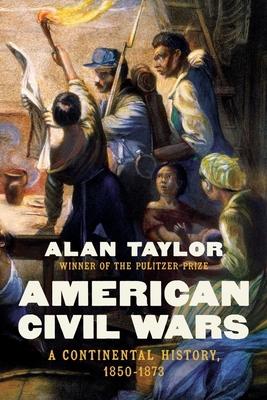In a fast-paced narrative of soaring ideals and sordid politics, of civil war and foreign invasion, the award-winning historian Alan Taylor presents a pivotal twenty-year period in which North America’s three largest countries--the United States, Mexico, and Canada--all transformed themselves into nations. The American Civil War stands at the center of the story, its military history and the drama of emancipation the highlights. Taylor relies on vivid characters to carry the story, from Joseph Hooker, whose timidity in crisis was exploited by Robert E. Lee and Stonewall Jackson in the Union defeat at Chancellorsville, to Martin Delany and Mary Ann Shadd Cary, Black abolitionists whose critical work in Canada and the United States advanced emancipation and the enrollment of Black soldiers in Union armies.
The outbreak of the Civil War created a continental power vacuum that allowed French forces to invade Mexico in 1862 and set up an empire ruled by a Habsburg archduke. This inflamed the ongoing power struggle between Mexico’s Conservatives--landowners, the military, the Church--and Liberal supporters of social democracy, led ably by Benito Juarez. Along the southwestern border Mexico’s Conservative forces made common cause with the Confederacy, while General James Carleton violently suppressed Apaches and Navajos in New Mexico and Arizona. When the Union triumph restored the continental balance of power, French forces withdrew, and Liberals consolidated a republic in Mexico.
Canada was meantime fending off a potential rupture between French-speaking Catholics in Quebec and English-speakers in Ontario. When Union victory raised the threat of American invasion, Canadian leaders pressed for a continent-wide confederation joined by a transcontinental railroad. The rollicking story of liberal ideals, political venality, and corporate corruption marked the dawn of the Gilded Age in North America.












